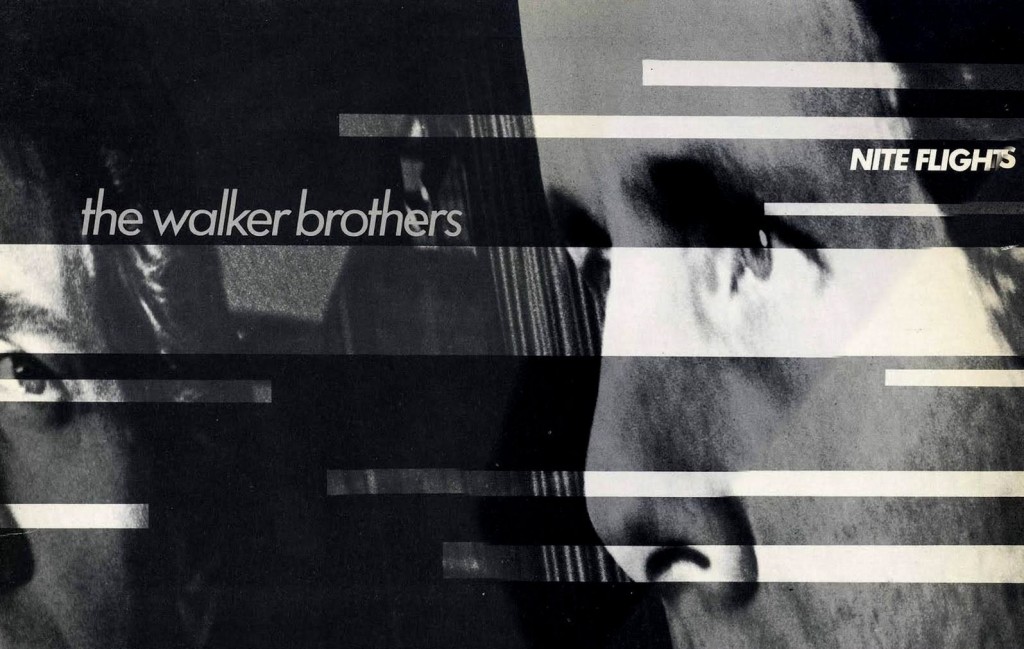Music
Underrated Classics: ‘Nite Flights’

Some albums aren’t meant to be flawless. Then again, artists typically don’t recognize the flaws until quite some time after the album is released, and in some cases they don’t recognize them at all. But very rarely can a heavily flawed album be somewhat of an exciting glimpse into what the future may hold for an artist. Almost as if it’s an attempt at a swan song with an injured wing, yet upon healed recovery, the artist has showcased one of the most interesting, diverse and beautiful album-careers in music history. This is very easily said about The Walker Brothers’ last album, Nite Flights.
It had been over 40 years since the world had been blessed with a Scott Walker-penned tune, and due to the expenses and commercial failure of his brilliant Scott 4, the 70s were musical exile for Walker’s career on Philips Records. Halfway through the decade, the band got together to perform again and had modest success with comeback albums, No Regrets and Lines. But the third and final Walker Brothers’ albu, didn’t feature the AM-friendly mood of their last two albums. Instead it boasted four songs from Scott Walker, that gave us a sneak peek into dark art pop that would characterize the rest of his career.
The rest of the album – which features two songs from Gary Walker and five songs from John Walker – are somewhat disappointing in contrast to Scott’s odd blend of synth pop, avant-garde rock, and his trademark surrealist lyricism. But the songs fit fairly well, and were sadly the last great songs the world would hear from the two. Each has one brilliant song a piece. Gary’s comes with the Station to Station-sounding “Den Haague.” The song is an obvious reference of the limitless partying many experience in the Netherlands’ capital The Hague. The song boasts a smooth piano-blues repetition, and the production is very fitting on the album. The brilliant song we get from John Walker is the orchestra-pop song “Fury and The Fire.” The arrangements on the song are terrific, and the E Street-style is very fitting to the era. As for the four Scott Walker songs (that also open the album), it’s a quadruplet of singles that are among the most brilliant ones he’s ever written.
The first song, “Shut Out,” has a very minimalist and desert-like feel to it, as it blends dance rock with post-punk very effectively. Additionally, the song possibly has the catchiest chorus on the whole album. The guitars are piercing and brilliant lines like: “Something attacked the Earth last nite with a kick that man habit – eye/cut the sleep tight boys who dreamed and dreamed of a city like the sky.” Following is one of Scott’s most terrifyingly brilliant surrealist exposes, the out-of-this-world “Fat Mama Kick” – “Sunfighters locked in right angle rooms/Watch their lovers sleep face down in the yellow lite/Keep the balance on a back curve/’Til the war with the night is over” – and lines like a repetition of “deaf-dumb-blind” complement the brilliant bass lines and an even more brilliant saxophone solo.
Following, we have the most poppy of Scott’s songs, the baroque-wave track “Nite Flights.” The song has an overall Roxy Music-like atmosphere to it, but the lyrics are so creepy and disturbing that it would make Bryan Ferry look like Dr. Seuss. In the first verse Scott sings “It’s so cold/The dark dug up by dogs/The stitches torn and broke/The raw meat fist you choke has hit the bloodlite,” and he confirms this twilight terror with “on the night flight, only one way to fall.” Lastly, we have one of Scott Walker’s most brilliant songs to date, “The Electrician.” Sitting a little over six minutes, the song starts out with two minutes of ambient noise, until Scott’s voice leads you into the song. The lyrics are nowhere near as complex as the first three on this album, but the vocal delivery is astonishingly beautiful. The song features a magnetic bridge of brilliant baroque-musicianship, and it’s truly one of Scott’s most gorgeous and well-produced songs. The overdubs on his vocals add a trademark haunt to his brilliant voice, and the song closes out in similar minimalist fashion.
It’s definitely unfair to call this album a flop, because it reintroduced us to the Scott Walker that the world fell in love with in the 60s. In 1984, Scott responded to the sneak peek given on Nite Flights with 1984’s wonderful synth pop record, Climate of Hunter. Since then, Scott has released four albums, two in the 1990s, and two in the previous decade. Since the release of 1995’s Tilt, Scott’s been fairly reclusive in comparison to his 60s and 70s pop star days, but every so often, Mr. Walker brings us a chilling album for many to tilt heads to, and many to cherish among their most prized record collections.
In December, he’ll be releasing his seventeenth album, entitled Bish Bosch, and I for one am definitely excited. If you need a proper introduction to Scott Walker prior to hearing his new record, definitely check out his solo stuff of the 60s, but if you need a few songs to temporarily blow your mind, Nite Flights is that record. Nite Flights has an essence of imperfection and uncomfortability, yet simultaneously possesses unadulterated beauty and magnetism in the songwriting of Scott Walker that stands the test of time.